Resignation letter template better opportunity
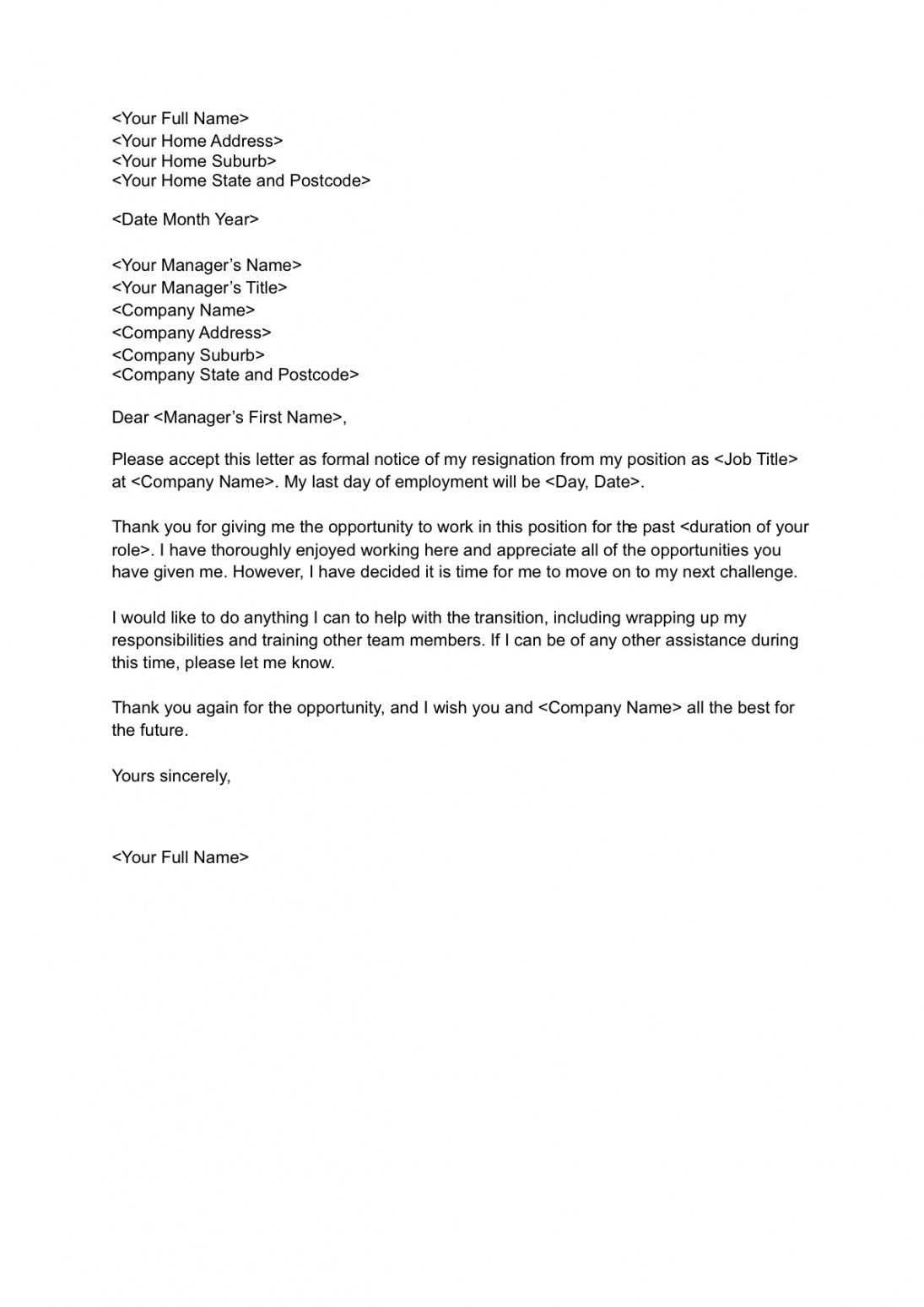
When you decide to move on to a new role, crafting a resignation letter that reflects your appreciation while maintaining professionalism is key. A well-written letter helps you leave on good terms, ensuring that your future opportunities remain open. Here’s a simple yet effective resignation letter template designed for when you’re stepping into a better career opportunity.
Start by clearly stating your intention to resign, specifying your last working day. Keep it brief but polite, acknowledging the positive experiences you’ve had with the company. This helps maintain a friendly relationship with your current employer, which could benefit you in the future.
Example:
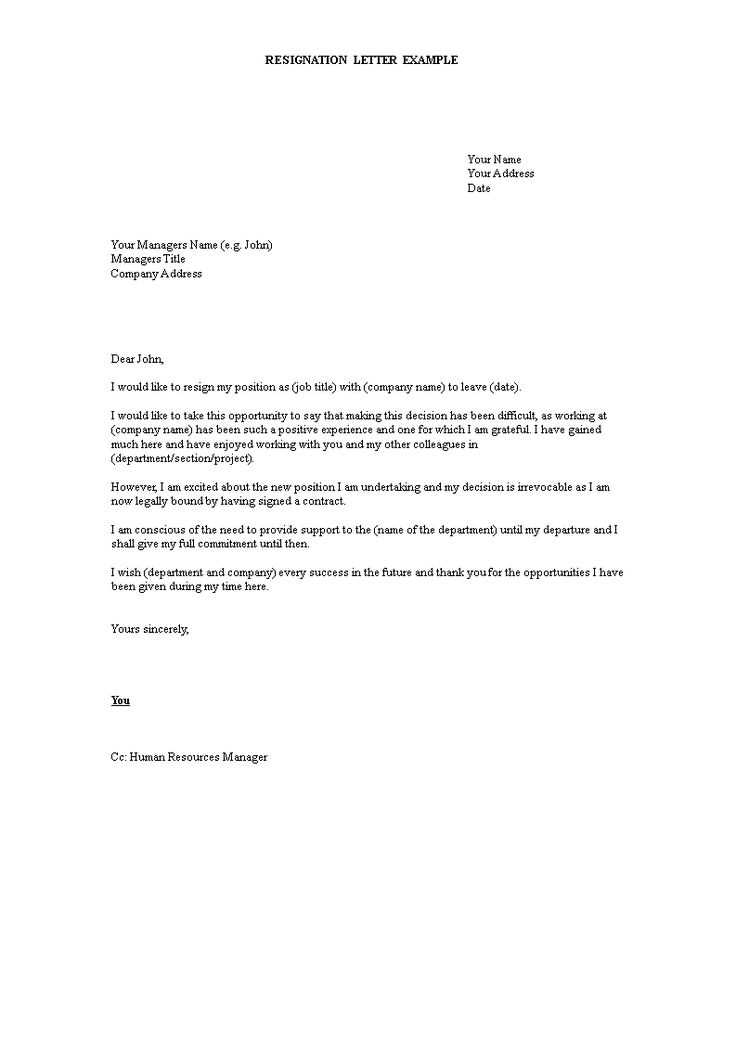
“Dear [Manager’s Name],
I am writing to formally resign from my position as [Your Job Title] at [Company Name], with my last working day being [Date]. I have greatly appreciated the opportunity to contribute to the team and the professional growth I’ve experienced here.”
Express your gratitude for the skills and experiences gained during your tenure. Avoid lengthy explanations or complaints about why you’re leaving. Instead, focus on the positives, and ensure that your letter remains concise and respectful.
Example:
“Thank you for the support and guidance over the years. I’ve learned a great deal working alongside such a talented team and am thankful for the opportunities you provided during my time here.”
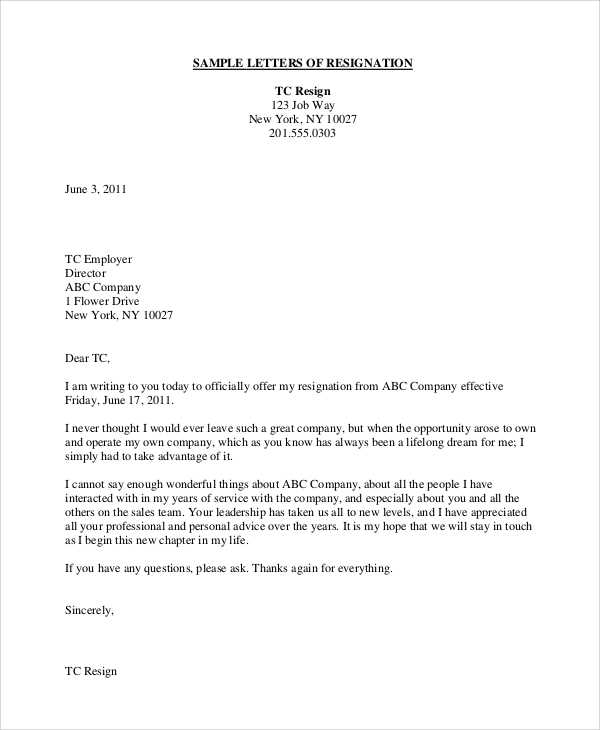
Lastly, offer your assistance in transitioning your responsibilities smoothly. This shows your commitment to a seamless handover and strengthens your professional image.
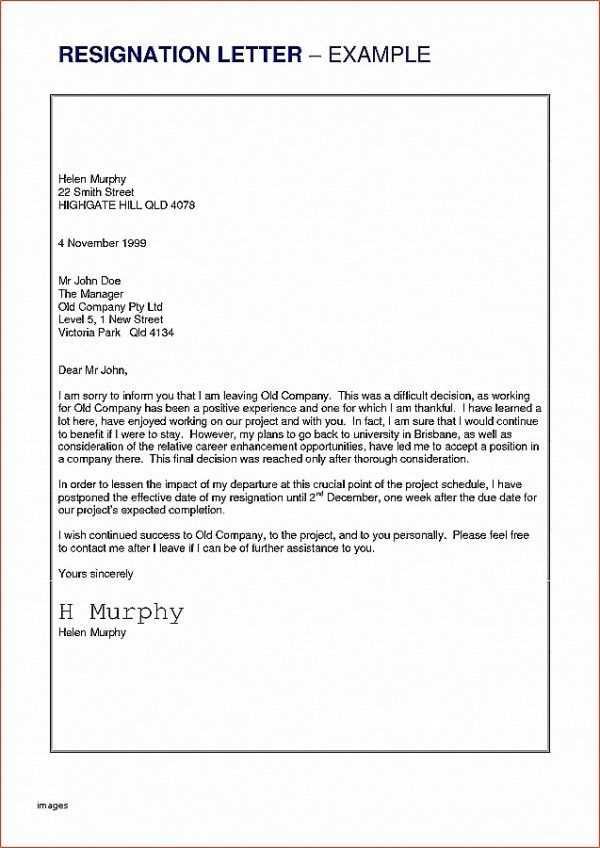
Example:
“I am happy to help with the transition process and ensure a smooth handover of my duties. Please let me know how I can assist during this time.”
Ending your letter with a simple closing, such as “Sincerely,” followed by your name, completes your resignation professionally. This ensures that you leave behind a positive impression while keeping the door open for future connections.
Here are the revised lines:
When crafting your resignation letter for a new opportunity, it’s crucial to keep the tone respectful and direct. Here are some lines you can use to express your decision without burning bridges:
- “After careful consideration, I have decided to pursue a new opportunity that aligns more closely with my long-term career goals.”
- “I am grateful for the opportunities I’ve had here, but I believe this next step is the right move for my professional growth.”
- “I am excited to take on new challenges, but I will always appreciate the time and experiences gained during my time with the company.”
- “I’ve accepted an offer that presents greater growth potential, and I look forward to the next phase in my career.”
- “Thank you for the opportunity to contribute to this team. I look forward to maintaining our professional relationship as I transition into this new role.”
Ensure your resignation letter communicates your gratitude while making it clear that you’re moving on for personal or professional reasons. These lines offer a balanced tone that will help you leave on good terms, while setting a positive tone for your departure.
- Resignation Letter Template for a Better Opportunity
When you decide to move on to a better opportunity, your resignation letter should reflect professionalism and appreciation. A simple and direct approach is key. Here’s how you can structure your letter:
1. Start with a clear statement of resignation. Begin by stating your intent to resign from your position, mentioning the company name, and specifying your final working day. This ensures clarity and avoids any confusion.
2. Express gratitude for the opportunity. Even if you’re leaving for a better opportunity, acknowledging the learning and growth you experienced in your current role shows maturity and respect for your employer.
3. Mention the reason briefly, without going into details. You don’t need to elaborate on the reasons for your departure, but mentioning that you’re moving on to a new role or a better opportunity is a polite way to explain your decision.
4. Offer to assist in the transition process. Providing your help in making the transition smooth is a thoughtful gesture that can leave a lasting positive impression. You can offer to train a replacement or assist in handing over your responsibilities.
5. Close with a positive note. End your letter with well wishes for the company’s continued success, leaving the door open for potential future collaborations. This ensures that you maintain a positive relationship, even after your departure.
Sample Resignation Letter:
Dear [Manager’s Name],
I am writing to formally resign from my position as [Your Job Title] at [Company Name], with my final working day being [Date]. After careful consideration, I have decided to pursue a new opportunity that aligns with my long-term career goals.
I want to sincerely thank you for the opportunity to be a part of [Company Name]. I have gained valuable experience and will always appreciate the support and guidance from you and the team.
During my remaining time, I am happy to assist in the transition process and ensure a smooth handover of my responsibilities.
I wish [Company Name] continued success and hope our paths cross again in the future.
Sincerely,
[Your Name]
Begin your resignation letter by stating your intention clearly and directly. Avoid unnecessary explanations or justifications. A simple and respectful opening is all that’s needed.
- Start with a clear statement: “I am writing to formally resign from my position at [Company Name], effective [Date].”
- Be specific about your departure date to give your employer enough time to make arrangements.
- If possible, briefly mention that you’re moving to a new opportunity, but keep the tone professional and concise.
For example, you could write: “After careful consideration, I have accepted an offer for a new position and will be resigning from my current role.”
The main section of your resignation letter should clearly state your decision to resign and provide key details that maintain professionalism and respect. Start by specifying the date of your resignation, which allows your employer to understand your departure timeline. This shows clarity and sets expectations.
Next, mention your reason for leaving. While it’s not necessary to go into great detail, offering a brief explanation (such as pursuing a new opportunity) keeps the tone neutral and transparent. If you’re leaving for a better job offer, consider keeping your explanation concise and positive.
It’s also helpful to express gratitude towards your employer for the opportunities or experiences you gained during your time there. A few lines of appreciation highlight your professionalism and leave a lasting positive impression. You might say something like, “I appreciate the opportunities I’ve had working with the team and the skills I’ve developed.”
Finally, offer assistance with the transition. You can mention your willingness to help train a replacement or to finish key tasks before your departure. This ensures a smoother transition and shows that you care about leaving on good terms.
Be honest and respectful in your resignation letter. State that you have accepted an offer for a new opportunity, but avoid excessive details about why you are leaving. Focus on the positives you’ve experienced with your current company and express gratitude for the opportunities provided. Keep your tone professional and avoid making negative comments about your job or colleagues. You don’t need to go into specifics about the new role, as the goal is to keep the conversation light and positive. A concise and thoughtful explanation will leave a lasting, favorable impression.
Here’s a sample of how to phrase it:
| Example Statement |
|---|
| “I’ve made the decision to pursue a new career opportunity that aligns with my long-term goals. It has been a privilege to work here and I’m grateful for all the experiences and relationships I’ve gained along the way.” |
Offer your help with the transition. Whether it’s training a replacement or assisting with any remaining projects, showing that you care about a smooth handover will leave a positive impression. Your efforts will reflect well on your professionalism and help preserve your relationship with the company.
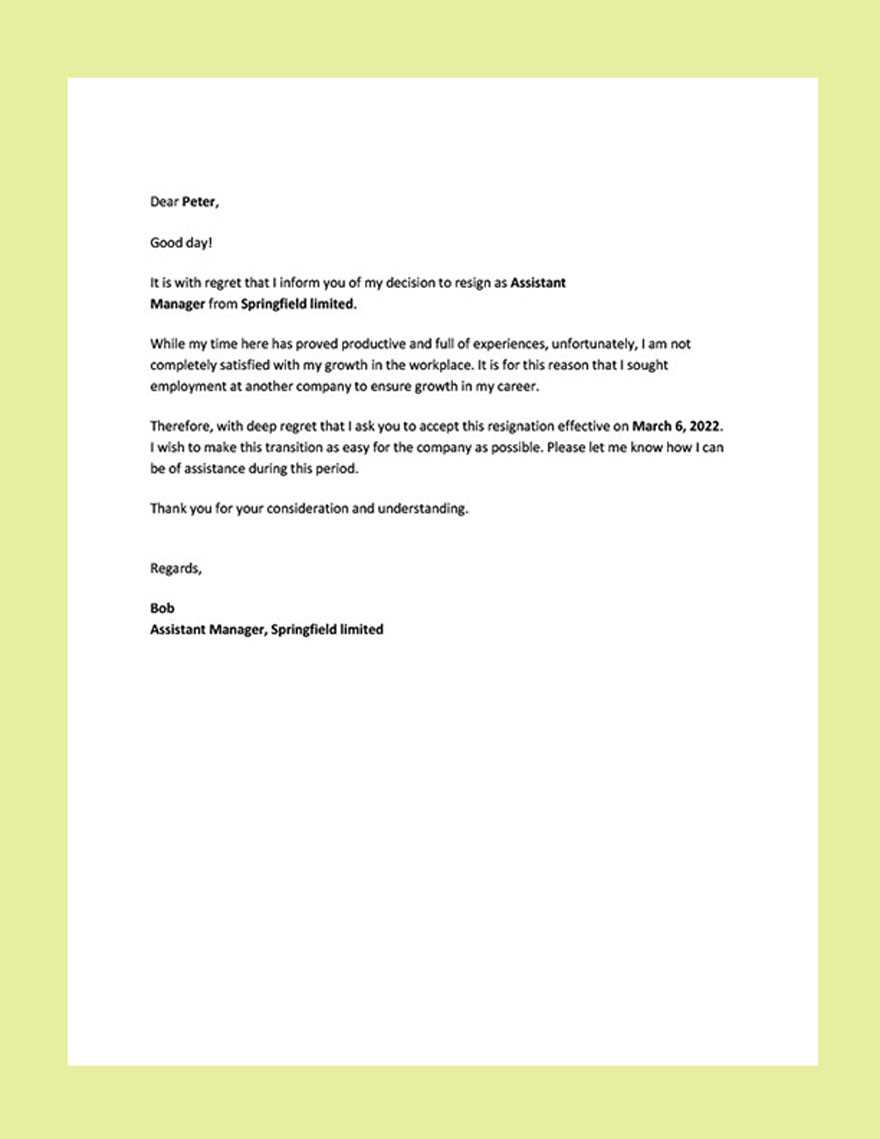
Lastly, express your wish to stay in touch. You never know when your paths might cross again, so keeping that door open is always a good idea. Mentioning that you hope to stay connected and can be of help in the future reinforces goodwill.
Begin with a clear statement about your resignation. A direct phrase like “I am writing to formally resign from my position as [Your Job Title]” sets the tone for the rest of the letter.
If you want to show appreciation for the opportunity, use phrases like “I have greatly appreciated the opportunity to work at [Company Name]” or “I am grateful for the experience and growth I have gained during my time here.”
Be respectful in your exit. Consider stating “My decision to leave is based on a new career opportunity that aligns with my personal and professional goals.” This provides clarity without going into too much detail.
When referring to your notice period, it’s helpful to be specific: “My last day of work will be [Date], as per the notice period required.” If you’re willing to help with the transition, say “I am happy to assist with the transition process to ensure a smooth handover of my responsibilities.”
End the letter with gratitude. You can say “I truly appreciate all the support and opportunities provided by the team and management.” This leaves a positive impression as you depart.
Be clear and direct in your resignation letter. State your intention to resign, including the effective date, without ambiguity. Avoid long explanations or justifications. Keep it short and to the point.
Submit your resignation in writing. Whether via email or a printed letter, ensure you provide a formal record. This makes the process official and leaves no room for confusion.
Provide sufficient notice. The standard notice period is typically two weeks, but check your contract for any specific requirements. Giving enough time helps your employer prepare for your departure.
Maintain a positive tone. Express gratitude for the opportunities and experiences you’ve gained during your time at the company. Even if your reasons for leaving are negative, keep the tone respectful and professional.
Offer to help with the transition. Suggest that you are available to train your replacement or assist in other ways during your remaining time. This shows consideration and goodwill.
Schedule a face-to-face meeting. If possible, meet with your supervisor before submitting your letter. This demonstrates respect and professionalism, allowing you to discuss your decision in person before it becomes official.
Keep your resignation confidential until it’s official. Avoid discussing your decision with colleagues before informing your supervisor. This prevents unnecessary gossip and ensures the process is handled appropriately.
Stay professional in your final weeks at the company. Follow through on any ongoing projects, ensuring you leave your work in a state that allows for a smooth handover. Keep communication with your manager and colleagues clear to avoid misunderstandings about deadlines or responsibilities.
Prepare for an exit interview. This meeting gives you a chance to provide constructive feedback and express gratitude for your time at the company. Be honest but diplomatic in your responses, focusing on areas that can genuinely help the company improve.
Make sure to organize your workspace and digital files. Back up personal documents and emails, and return company property such as laptops, keys, or access cards. This will ensure a clean break and avoid unnecessary complications later on.
Update your LinkedIn profile and resume. Remove the job you’re resigning from, but add your next position once you’re settled into your new role. This reflects your forward-thinking approach and positions you well for future networking.
Leave on good terms. Make a point of saying goodbye to your colleagues and expressing your appreciation for their support during your time with the company. A positive departure helps preserve professional relationships and leaves a good impression.
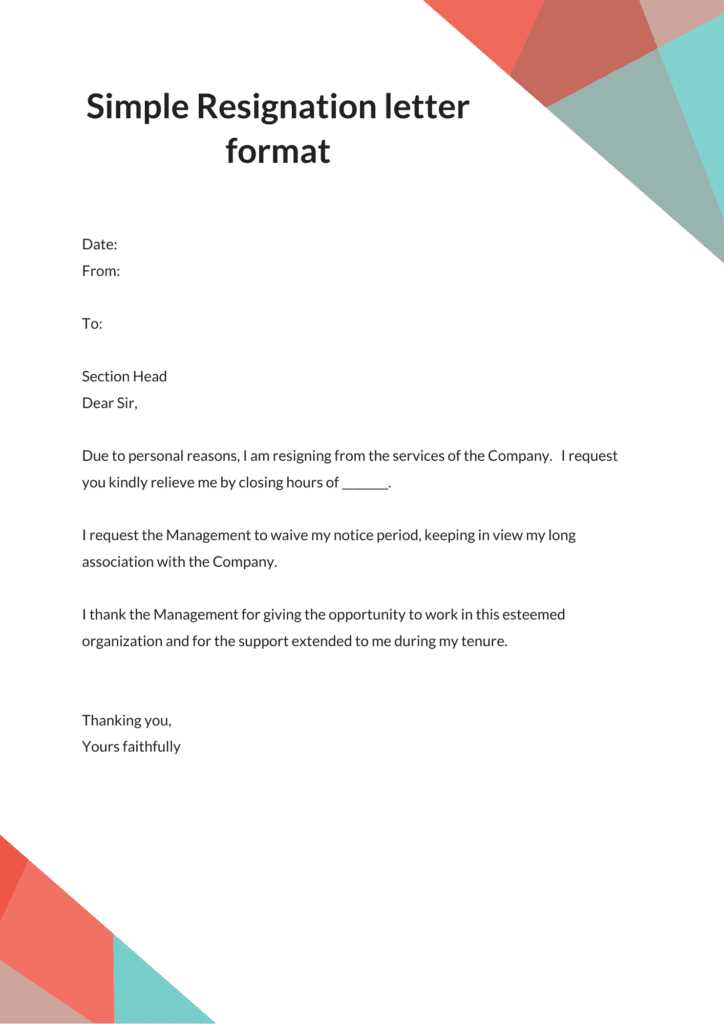
Minor adjustments made to avoid repetition and maintain clarity and meaning.
When writing a resignation letter due to a better opportunity, focus on expressing appreciation without over-elaborating. Clearly state your intent to resign, mentioning your reason briefly and professionally. Keep the tone positive, even if your reasons for leaving are not entirely positive. Highlight the growth you’ve experienced with the company and express gratitude for the opportunities offered. Avoid excessive detail or negative comments about the workplace. Keep the letter concise, direct, and respectful, ensuring the transition remains amicable. Make sure to end with an offer to assist in the handover process to smooth the transition for your team and employer.